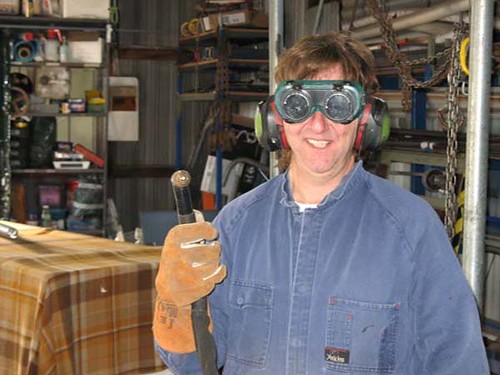
At the Hill and Knowlton “Surviving and thriving in the next decade – Technology Publishing” Breakfast Bytes this morning, a group of eminent panelists in picture above, from the left:
- James Tuckerman – Publishing Editor, AntHill. New relatively magazine about ideas, money and skills. Previously more print than online, but adding new online projects later in 2007.
- Heather Craven – Director of Marketing & Communications, Circulations Audit Board,
Australian Circulation Bureau. Sub-committee researching digital.
- Brian Haverty – Editorial Director, CNET Networks Australia : Readers first, video and text style publishing.
- Tony Sarno – Editor, APC. Adding new online APC projects later in 2007.
- Peter Roberts – Managing Editor, BRW. Part of the Fairfax group, around since 1857. Noted that http://www.afr.com/ relaunched this week, and closed content model AFR Access continues.
- Andrew Kirk, Hill and Knowlton: Chair
The theme from the morning’s panel and Q&A is that “there will be a mixture of online and print” and that “online and print” readers are treated as different readers by the big-names. My perspective as a corporate online/citizen journalist is slightly different.
Like the quintessential investigative journalists: Woodward and Bernstein learnt: follow the money. In the above listing of panelists, notice where their stated investment is going. It’s online.
From a traditional publisher’s perspective, the business is about employing journalists to gather hidden facts, connect, analyse and write stories. People buy the paper (atoms) to read the stories and maybe their eyeballs will stray onto an advertisement. The marketing groups of companies buy these positions on the paper in the hope that the right eyeballs are enthralled by the product and/or service – and buy the product. The core of a publisher’s job is managing the compelling content such that a specific audience is created that advertisers value.
The web is no different, except that anyone can be a publisher, and outsource the revenue side (advertising) to Microsoft or Google. Large publishers, such as Fairfax, are unhappy that their expensive infrastructure is subverted online: Peter Roberts mentioned twice that Google made $200 million in Australia without investing in the content-side.
Peter Roberts also commented on one of his competitors, Alan Kohler’s Eureka Report, having only an online mechanism but successful business model. My perspective is that Alan’s business is successful as he is seen as a respected and independent entity within Australia’s financial community. Alan Kohler is a trusted brand.
The Gadget Guy, Peter Blasina’s question near the end summarised the morning for me: What does the future really look like? Each of the represented panelist’s organisations (maybe with the exception of cnet) have their business strategies weighted toward print, and the brand-value that print brings.
Peter Blasina comes at this with credibility as a true multi-channel brand and personality: print, online and TV – and surmised that the coming generation will change the face of the print publisher’s world. And they know it.
The future for publishers is where the eyeballs are. And eyeballs are not going to be in print, it is going to be online. Eyeballs stay longer where this is trusted value, and most importantly where there is a community. Reading a magazine is an almost high-latency feedback medium; where two-way interaction is slow if attempted at all.
Demographics of the eyeballs are changing to more online: younger readers being digitally native and older generations having more time to explore online; with more females than males desiring a community and interaction rather than passive acceptance; high bandwidth connection to permit TV, Radio and Print being equal online mediums.
Whilst I have no research to back this up, I am going to state it here. A common refrain from print publishers is that “Radio did not replace newspapers, and TV did not replace radio” as their backwards looking perspective on why online will not replace these old media. My argument is that the internet can replace the media styles: with web pages, podcasts and vidcasts. As Rupert Murdoch is quoted as saying: “Big media no longer controls the conversation”
James Tuckerman knows his readers, and I think has a plan to create value in Anthill’s community. He understands the emotional connection that he has with his readership. James also stated there are “population lumps” at birth-years of 1949, 1974 and 1985. According to the ABS, there is another population lump in the 2005-7 range too. My suggestion is to watch Anthill as a publisher. They are starting a conversation with their community.
A Question about SecondLife, the current “craze” in Australia potentially due to a visit in meatspace by a Linden Labs persona, resulted in Tony Sarno saying that “many PBL management have visited SecondLife”. I fear it is because of the gambling dens rather than the community aspect. About 20% of the audience of largely PR and technology industry attendees had logged into SecondLife, of which most had logged in once.
So, in industry parlance, what is the tip-on for online? It’s the community. Community is the new Brand.
Technorati Tags:
australia,
media








